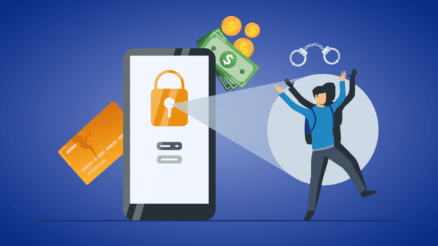The digital age has revolutionized access to finance, making online loans a popular choice for Filipinos seeking quick and convenient access to funds. In a country where traditional banking access can be limited for many, online lending platforms offer a lifeline for immediate needs, emergencies, or small business capital. However, with the proliferation of legitimate players comes a dark shadow: a rampant surge in illegal, predatory, and fraudulent online lending operations. As of 2026, navigating this landscape requires heightened vigilance and a clear understanding of how to differentiate between a trustworthy financial partner and a dangerous scam.
CashLoanPH is designed to empower you, the Filipino borrower, with the knowledge and tools to confidently identify and engage with legitimate online loan providers, ensuring a safe, fair, and secure borrowing experience. We’ll dive deep into crucial verification steps, expose common red flags, and highlight the regulatory landscape shaping the online lending environment in the Philippines.
The Urgent Need for Due Diligence: Why It Matters More Than Ever
The appeal of fast cash is undeniable. Online lenders often promise quick approval and disbursement, bypassing the lengthy application processes of traditional banks. This speed, however, is frequently exploited by unregistered entities that operate outside the law. These illegal lenders, often disguised as legitimate apps, engage in:
- Exorbitant Interest Rates and Hidden Fees: Charging rates far exceeding reasonable or legal limits, often undisclosed until the borrower is trapped.
- Harassment and Shaming Tactics: Using highly aggressive and often illegal debt collection methods, including publicly shaming borrowers and their contacts, threats, and intimidation.
- Data Privacy Violations: Illegally accessing personal data on borrowers’ phones (contacts, photos, messages) to facilitate their shaming tactics, a gross violation of the Data Privacy Act.
- Lack of Transparency: Failing to provide clear loan terms, conditions, and total repayment amounts, making it difficult for borrowers to understand their obligations.
The Securities and Exchange Commission (SEC) and the National Privacy Commission (NPC) have been relentless in their crackdown on these abusive operations, delisting hundreds of non-compliant apps and issuing cease and desist orders. Yet, new illicit apps continue to emerge, highlighting the ongoing need for individual vigilance.
Your First Line of Defense: Verifying SEC Registration
In the Philippines, any company offering lending services must be registered with the Securities and Exchange Commission (SEC) and, more importantly, hold a Certificate of Authority to Operate a Lending Company (CA). This is the bedrock of legitimacy. Without this certification, an online lender is operating illegally and should be avoided at all costs.
How to Verify an Online Lender’s Legitimacy with the SEC (2026 Steps)
- Visit the Official SEC Website: Always go directly to the SEC’s official website (sec.gov.ph). Do not rely on links provided by the lending app or third-party sites, as these could be fraudulent.
- Navigate to the Lending Companies/Financing Companies Section: Look for sections related to “Lending Companies,” “Financing Companies,” or “Advisories” and “Enforcement Orders.” The SEC regularly publishes lists of both licensed and revoked/unregistered companies.
- Check the “List of Lending Companies with Certificate of Authority (CA)”: The SEC maintains a comprehensive, publicly accessible list of all companies granted the authority to operate as lending companies. This list is updated periodically.
- Search by Company Name: Type the exact legal name of the online lending company you are considering. Be precise, as slight variations might exist.
- Verify the CA Number and Date: If the company is listed, cross-reference its Certificate of Authority (CA) number and the date it was issued. Ensure the CA is current and not expired or revoked.
- Cross-Reference with the “List of Unregistered/Revoked/Online Lending Apps with Reported Harassment”: Equally important is checking this negative list. If the company or app name appears here, it’s a definite red flag and you should cease all engagement immediately. The SEC also issues public advisories about specific fraudulent apps or schemes, so check those as well.
- Verify Physical Address and Contact Information: Legitimate companies will have a verifiable physical office address and publicly listed contact details (phone numbers, email addresses). Do a quick Google search to see if these match their online presence and if they appear credible.
Pro-Tip: Be wary of online lenders that only operate via a mobile app and have no verifiable website or physical address. While many legitimate online lenders operate primarily through apps, they will always have an official company website providing transparency about their operations and SEC registration.
Beyond SEC: Other Crucial Indicators of a Legitimate Online Loan
While SEC registration is paramount, several other factors contribute to a safe and legitimate borrowing experience.
- Transparent Terms and Conditions (Truth in Lending Act):
- Clear Disclosure: A legitimate online lender will provide a clear, comprehensive disclosure statement before you sign any agreement. This document, mandated by the Truth in Lending Act (Republic Act No. 3765), must include:
- The exact principal amount of the loan.
- The effective interest rate (EIR), which includes all charges.
- All fees and charges (processing fees, late payment fees, etc.) itemized.
- The total amount to be repaid.
- The payment schedule.
- No Hidden Fees: Be extremely suspicious of lenders who are vague about fees or only reveal them after you’ve submitted your application or, worse, after the loan is disbursed.
- Understandable Language: The terms should be in plain, understandable English (or Filipino) and not overly complex legalese designed to confuse you.
- Clear Disclosure: A legitimate online lender will provide a clear, comprehensive disclosure statement before you sign any agreement. This document, mandated by the Truth in Lending Act (Republic Act No. 3765), must include:
- Reasonable Interest Rates and Fees:
- While the Usury Law in the Philippines has been suspended, allowing for flexible interest rates, government bodies like the Bangko Sentral ng Pilipinas (BSP) and the SEC are increasingly setting caps on interest rates and fees for specific loan types, particularly short-term consumer loans.
- Compare the stated interest rate with what reputable banks or other legitimate online lenders offer. Rates that seem too good to be true (e.g., extremely low without sufficient credit history) or excessively high (e.g., 20-30% per month) are major red flags.
- Legitimate lenders usually have a range of rates based on your creditworthiness.
- Respect for Data Privacy (Data Privacy Act of 2012):
- Permissible Data Access: Legitimate loan apps will request access only to data necessary for identity verification and credit assessment (e.g., camera for ID capture, location for fraud detection).
- Red Flag Permissions: Immediately delete any app that demands access to your contacts, photo gallery, SMS messages, or call logs. These permissions are characteristic of predatory lenders who use this data for harassment and public shaming.
- Privacy Policy: A legitimate lender will have a clear and accessible privacy policy detailing how your data is collected, used, stored, and protected. Read it carefully. The National Privacy Commission (NPC) is very active in prosecuting violations of the Data Privacy Act, especially concerning loan apps.
- Professional Customer Service and Communication:
- Responsive Support: Legitimate lenders will have accessible customer service channels (phone, email, chat) and will respond to inquiries professionally and promptly.
- Clear Communication: All communication should be formal and professional. Be wary of lenders who use threatening, abusive, or unprofessional language, even before a loan is due.
- Physical Presence (Optional but Reassuring): While many online lenders are purely digital, some may have physical offices or customer service centers. This adds another layer of legitimacy.
- Secure Website and App:
- SSL Certificate: Check if the website URL starts with “https://” (the ‘s’ stands for secure) and if there’s a padlock icon in the browser address bar. This indicates that data transmitted between your browser and the site is encrypted.
- App Store Presence: While not foolproof, legitimate apps are usually found on reputable app stores (Google Play Store, Apple App Store). However, always verify the developer’s name and check reviews for consistent complaints about scamming or abusive practices. The SEC’s “whitelist” requirement for apps on these stores is a critical step in ensuring their legitimacy.
What to Do If You Encounter a Suspicious Online Loan App
If you come across an online loan app or company that exhibits any of the red flags discussed:
- Do Not Engage: Do not apply for a loan, provide personal information, or download the app.
- Report to the SEC: File a complaint or report with the SEC’s Enforcement and Investor Protection Department (EIPD). Provide as much detail as possible, including the app name, company name, and any suspicious communications.
- Report to the NPC: If the app has already accessed your personal data without consent or used it for harassment, report the data privacy violation to the National Privacy Commission (NPC).
- Uninstall the App: If you’ve mistakenly installed a suspicious app, uninstall it immediately. Consider running a security scan on your device.
- Inform Others: Share your experience with friends and family to prevent them from falling victim.
The Role of the Financial Products and Services Consumer Protection Act (FPSCPA)
The passage of the Financial Products and Services Consumer Protection Act (RA 11765) in 2022 has significantly strengthened consumer rights in the financial sector, including online lending. This law empowers regulators like the SEC and BSP to:
- Provide Front-line Consumer Redress: Directly address consumer complaints and facilitate resolutions.
- Order Restitution: Mandate financial service providers to return funds to consumers who have been unfairly treated.
- Impose Administrative Fines: Levy significant penalties on companies found violating consumer protection rules.
This means that legitimate lenders are now held to a higher standard of consumer protection, making it even more crucial to choose a registered and compliant provider. You now have a stronger legal recourse if you face unfair or abusive practices from a legitimate entity.
Conclusion: Borrow Smart, Borrow Safe
The convenience of fast online loans is undeniable, but the risks associated with illegitimate players are substantial. As of 2026, the Philippine regulatory bodies are making significant strides in cleaning up the online lending landscape, but the ultimate responsibility for a safe borrowing experience rests with you, the borrower.
By diligently verifying SEC registration, understanding the terms and conditions, safeguarding your data privacy, and recognizing red flags, you can effectively navigate the online lending market. Always prioritize legitimacy and transparency over speed alone. Remember, a truly fast loan should also be a safe and fair one. Empower yourself with knowledge, borrow responsibly, and protect your financial well-being in the digital age.


![Philtrust Bank Exchange Rate Today [Latest Update] Philtrust Bank Exchange Rate Today [Latest Update]](https://cashloanph.com/wp-content/uploads/2023/05/philtrust-bank-exchange-rate-today-cashloanph-438x246.jpg)

